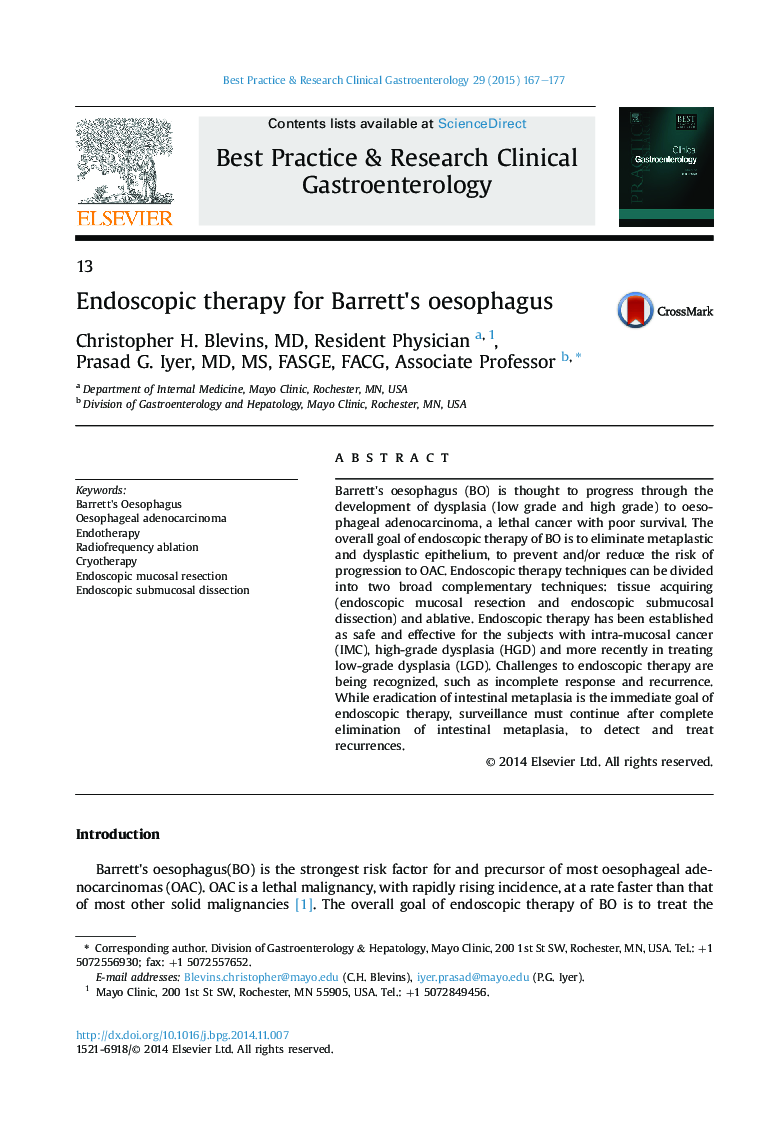| Article ID | Journal | Published Year | Pages | File Type |
|---|---|---|---|---|
| 3254418 | Best Practice & Research Clinical Gastroenterology | 2015 | 11 Pages |
Barrett's oesophagus (BO) is thought to progress through the development of dysplasia (low grade and high grade) to oesophageal adenocarcinoma, a lethal cancer with poor survival. The overall goal of endoscopic therapy of BO is to eliminate metaplastic and dysplastic epithelium, to prevent and/or reduce the risk of progression to OAC. Endoscopic therapy techniques can be divided into two broad complementary techniques: tissue acquiring (endoscopic mucosal resection and endoscopic submucosal dissection) and ablative. Endoscopic therapy has been established as safe and effective for the subjects with intra-mucosal cancer (IMC), high-grade dysplasia (HGD) and more recently in treating low-grade dysplasia (LGD). Challenges to endoscopic therapy are being recognized, such as incomplete response and recurrence. While eradication of intestinal metaplasia is the immediate goal of endoscopic therapy, surveillance must continue after complete elimination of intestinal metaplasia, to detect and treat recurrences.
